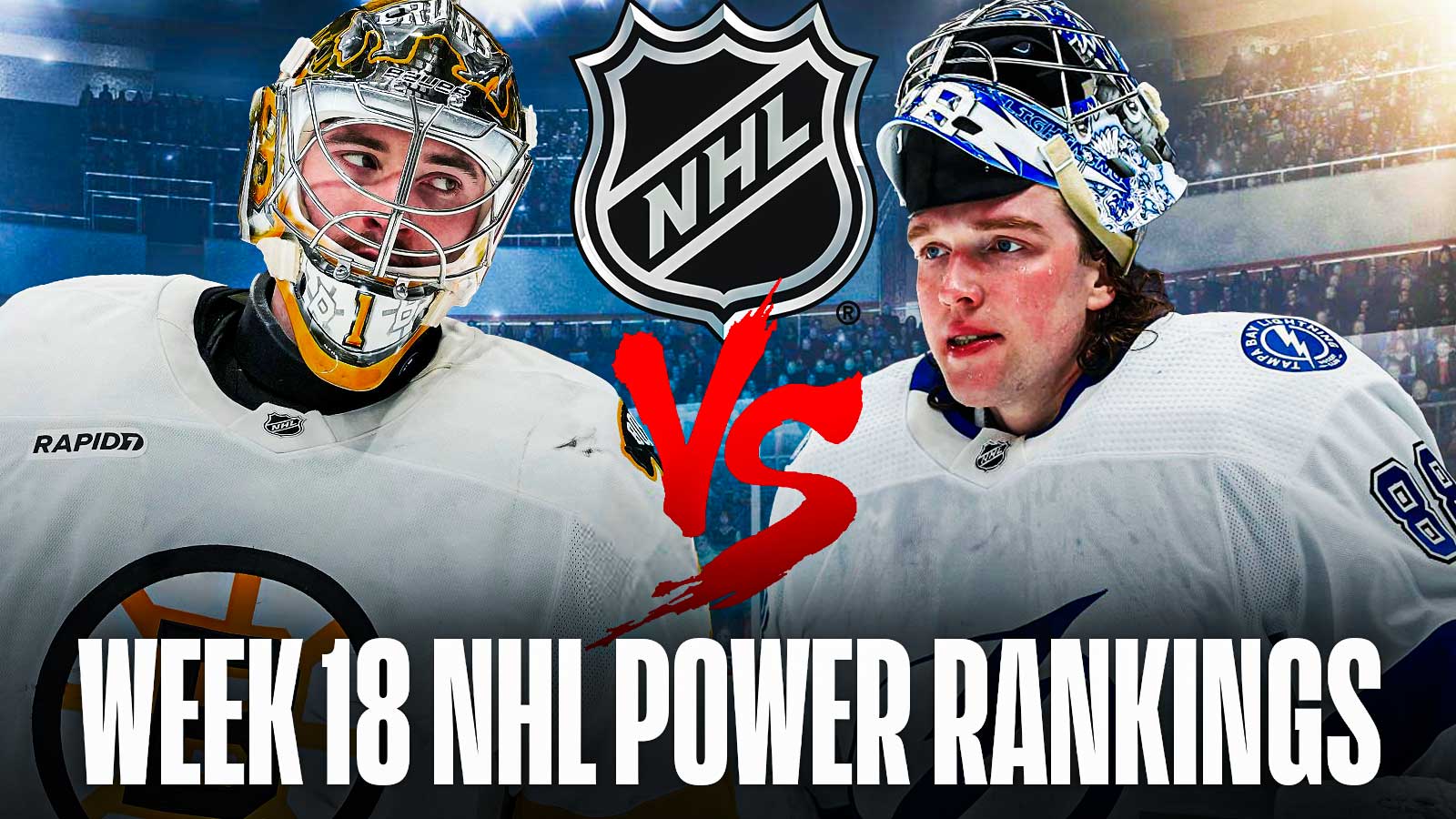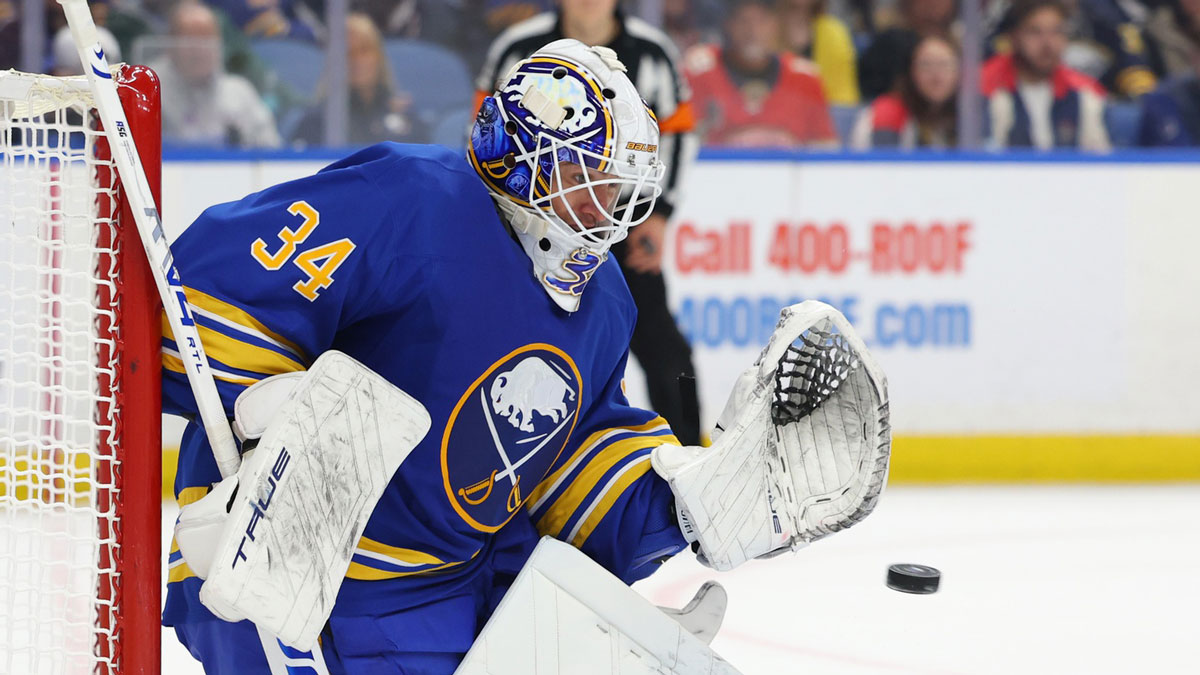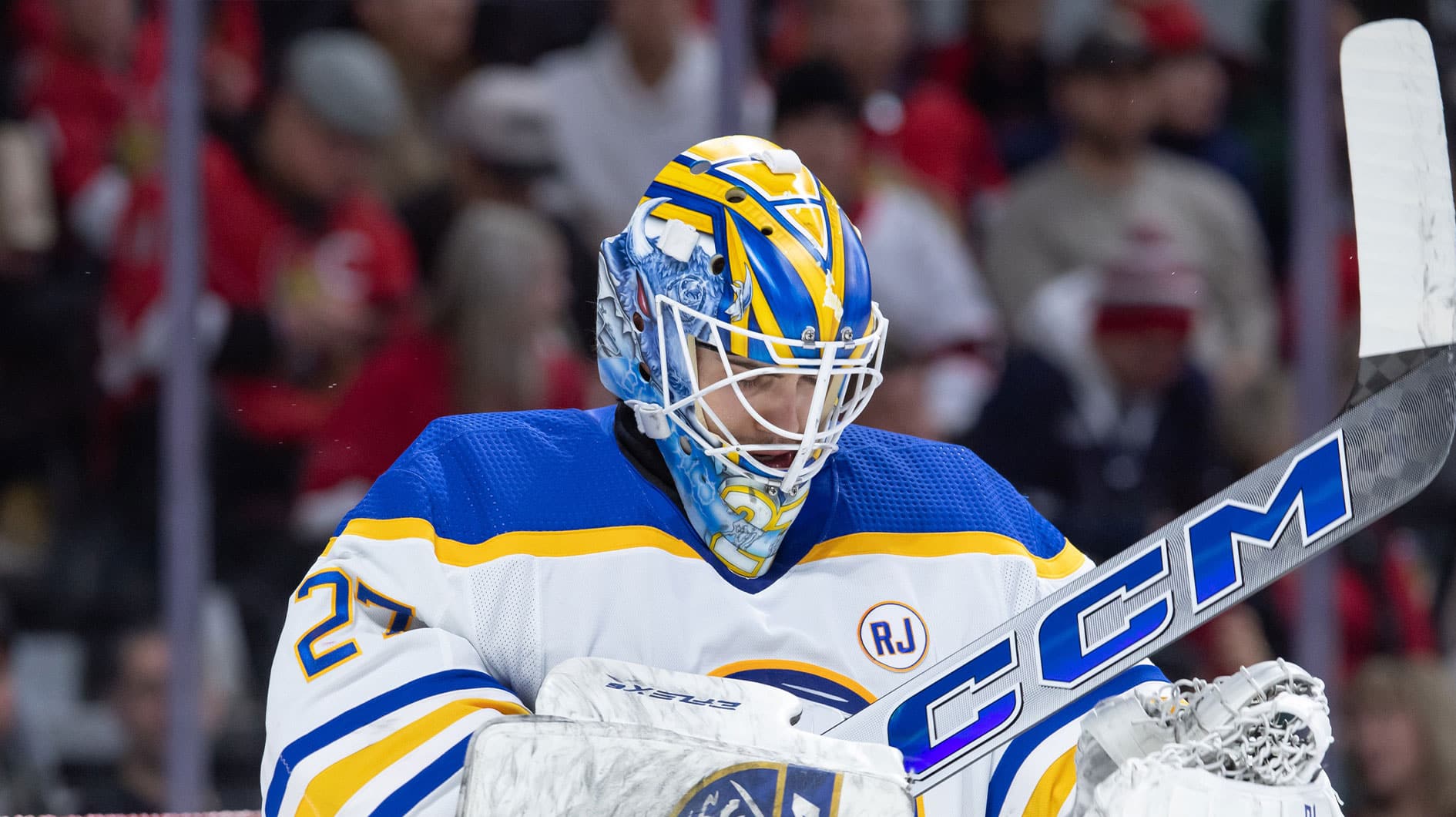The Buffalo Sabres enter the 2025-26 NHL season looking to end a 14-year playoff drought.
The Sabres finished 14th in the Eastern Conference last season, posting a 36-39-7 record with 79 points. However, they face an uphill battle as they try to get back to the postseason.
Below are four predictions for the Sabres' 2025-26 season.
Jiri Kulich doubles his 2024-25 point total
The Sabres will need their young talent to take meaningful steps if they're going to be more competitive this season. Amongst the group are Jack Quinn, Zach Benson, and Peyton Krebs. However, the most interesting name to watch may be Jiri Kulich.
The 2024-25 season marked Kulich's rookie year, after spending the two prior seasons with the AHL's Rochester Americans. In 62 games with the Sabres last season, Kulich posted 15 goals and 24 points. Despite missing 20 games, the rookie still finished tied for eighth on the team in goals.
However, it's a safe bet that Kulich takes a big step this season. Over his two seasons in Rochester, Kulich scored 51 goals over 119 games, which translates to an 82-game pace of about 35 goals. He also had a great stretch with the Sabres between late December and the end of January last season, where he posted seven goals and 12 points over a 15-game period.
We also saw him grow his role last season. After averaging 12:27 per game in even-strength ice time over his first 31 games with the Sabres, Kulich went on to average over 14 minutes per game at even strength in his final 31 games of 2024-25.
Considering Kulich has a year of NHL experience and is likely to be used in the Sabres' top-six, there's a good bet that he'll see a big jump in production. He's shown that he's able to score goals at a high rate, and if he can stay healthy for the full season, there's certainly a chance he can double his 24 points from last season.
Ryan McLeod and Jason Zucker see a decline in production
While Kulich and some of the Sabres' other young forwards are likely to see an increase in production, there are others within the forward group who could see their numbers decrease. Two of the top candidates for a decline in production ranked top-five on the team in goals last season.
Ryan McLeod had a great first season in Buffalo after being acquired from the Edmonton Oilers last summer. McLeod posted 20 goals and 53 points, marking a significant increase from his numbers during his time with the Oilers.
While a larger role was a factor, perhaps the bigger reason was a very high shooting percentage. McLeod's shooting percentage was over 20 percent across the year, whereas it stood around 12 percent during his time with the Oilers. Assuming McLeod's shooting percentage drops back down a bit, his production should as well.
Meanwhile, Jason Zucker is another candidate for a regression. Zucker posted 21 goals and 53 points last season, which ranked top-five on the team in both categories.
However, a few factors work against Zucker repeating those numbers. For starters, it marked a bit of an outlier year for the winger, after his production had taken a pretty large dip over the previous four seasons. Plus, he's now 33 years old and even in his prime years, his offense was often inconsistent from year to year. Factor in that some of the younger forwards could end up stepping into larger roles as the season progresses, and it's unlikely Zucker reaches the 50-point mark again.
Alex Tuch is either traded or overpaid

One of the biggest questions for the Sabres heading into the season revolves around forward Alex Tuch. The winger can hit free agency in 2026, and is due for a large raise.
Tuch has scored at an 82-game pace of 31 goals and 71 points over his four seasons in Buffalo. Factor in the rising salary cap, and he could get close to doubling his current $4.75 million cap hit.
As a result, the Sabres have a decision to make with the winger. On one hand, it would be very difficult to replace Tuch's production. Especially considering the team already traded JJ Peterka this summer, and moving Tuch would mean the team has parted with two of their top three scorers from 2024-25.
On the other hand, Tuch will also be 30 years old at the time his next contract begins. He'll be due for a long-term deal, and there'll be concern of age-based decline by about the midway point of the contract. Plus, the Sabres could likely get back a great return, if they opted to move Tuch to a contender.
There's likely also no reason from Tuch's perspective to rush to sign an extension. It'd be best to let some other deals fall into place first, to set a baseline against a higher salary cap. Then factor in that Buffalo hasn't necessarily been a desirable market, and the leverage likely rests with Tuch.
As a result, we're likely to see this play out in one of two ways. Tuch could likely be moved if he doesn't have an extension by the deadline. However, if an extension does get done before then for Tuch to stay, look for it to come in at a high number.
Sabres finish near bottom of Atlantic Division again
It's possible we could see some improvement from the Sabres this season. The team is fairly young, featuring many players who could be poised to take a step.
At the same time, they still have a difficult path to the playoffs. Their roster hasn't improved much on paper, and the biggest move they made this season was trading away one of their best young players, in JJ Peterka.
Even within the Atlantic Division, they don't stack up that well against their competition. The Florida Panthers, Tampa Bay Lightning, Toronto Maple Leafs, Ottawa Senators, and Montreal Canadiens are all expected to be strong once again this year. The Sabres would need to finish ahead of at least one of these teams for a chance at a wildcard spot, which seems unlikely.
The likely scenario is the Sabres, Boston Bruins and Detroit Red Wings finishing at the bottom of the division again.




















